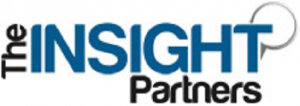Next-Generation Antibody Market Revenue To Cross USD 12,050.13 million by 2028 Says, The Insight Partners
Oncology Segment, by Therapeutic Area, to Lead Market during 2021–2028
NEW YORK, UNITED STATES, January 24, 2022 /EINPresswire.com/ -- According to The Insight Partners new research study on “Next-Generation Antibody Market Forecast to 2028 – COVID-19 Impact and Global Analysis – by Therapeutic Area, and Technology,” the market is expected to reach US$ 12,050.13 million by 2028 from US$ 5,468.41 million in 2021; it is estimated to grow at a CAGR of 11.9% during 2021–2028. The report highlights trends prevailing in the market and factors driving its growth. The growth of the market is attributed to the rising prevalence of cancer worldwide and the increasing demand for next-generation antibody. However, the complications associated with manufacturing and approvals hamper the market growth.
Strategic Insights
Report Coverage Details
Market Size Value in US$ 5,468.41 million in 2021
Market Size Value by US$ 12,050.13 million by 2028
Growth rate CAGR of 11.9% from 2021 to 2028
Forecast Period 2021-2028
Base Year 2021
No. of Pages 181
No. Tables 58
No. of Charts & Figures 70
Historical data available Yes
Segments covered Therapeutic Area, and Technology
Regional scope North America; Europe; Asia Pacific; Latin America; MEA
Country scope US, UK, Canada, Germany, France, Italy, Australia, Russia, China, Japan, South Korea, Saudi Arabia, Brazil, Argentina
Report coverage Revenue forecast, company ranking, competitive landscape, growth factors, and trends
Get sample PDF Copy of Next-Generation Antibody Market at: https://www.theinsightpartners.com/sample/TIPRE00006412/
Next-generation antibodies are designed to be more specific and often more potent than traditional monoclonal antibodies. Next-generation antibody strategies are required to engineer a useful therapeutic combining antibody, payload, linker, and conjugation method while ensuring stability, targeted delivery, and limited off-target effects.
The report offers insights and in-depth analysis of the next-generation antibody market, emphasizing various parameters such as market trends, technological advancements, market dynamics, and competitive landscape analysis of leading market players worldwide. It also includes the impact of the COVID-19 pandemic on the market across all the regions. The pandemic has disrupted the socioeconomic conditions of various countries across the world. Presently, the US is the world's worst-affected country due to the COVID-19 outbreak with the highest number of confirmed cases and deaths across the world, as per the recent WHO statistics. The high number of COVID-19 positive cases has negatively impacted the global economies. There has been a decline in overall business activities and the growth of various industries operating worldwide.
Growing Demand for Next-Generation Antibody Therapeutics to Drive Next-Generation Antibody Market
Rising developments in biotechnology have led to an increasing acceptance for next-generation antibodies therapeutics, which is driving its use in autoimmune, inflammatory, and chronic diseases treatment. Next-generation antibody treatments have resulted from the application of sophisticated technologies in antibody therapeutics, such as antibody–drug conjugates (ADCs), glycoengineered antibodies, and specific antibodies (BsAbs). Therefore, applications of next-generation antibodies are being widely studied to treat various chronic diseases such as cancer, HIV, infectious diseases etc. The rising demand for these antibodies have resulted in the rapid increase in the approval of ADCs and other next-generation antibodies therapeutics. For instance, in May 2020, Takeda Pharmaceutical Company Limited announced the FDA approval of ALUNBRIG (brigatinib) for adult patients with anaplastic lymphoma kinase-positive (ALK+) metastatic non-small cell lung cancer (NSCLC) as detected by an FDA-approved test. ALUNBRIG's current indication has been expanded to encompass the first-line setting with its approval. ALUNBRIG is a next-generation tyrosine kinase inhibitor (TKI) designed to target ALK molecular abnormalities. Similarly, in 2019, Genentech announced FDA accelerated approval of Polatuzumab vedotin-piiq, a CD79b-directed antibody-drug conjugate indicated in combination with bendamustine and a rituximab product for adult patients with relapsed or refractory diffuse large B-cell lymphoma.
Therefore, the next-generation antibody market is anticipated to grow rapidly during the forecast period due to the rising clinical trials approvals and high adoption of next-generation antibodies therapeutics for the treatment of various diseases.
Impact of COVID-19 Pandemic on Next-Generation Antibody Market
The COVID-19 pandemic is adversely affecting industries worldwide. The outbreak led to significant disruptions in primary industries, such as manufacturing, healthcare, energy & power, electronics & semiconductor, aerospace & defense, and construction in 2020. In the initial days of the COVID-19 outbreak, many sectors witnessed a negative impact on the total sales of most companies. The approval of monoclonal antibody services has expanded for the development of COVID-19 vaccines. The companies engaging in the next-generation antibody market witnessed a negative impact on their services in early 2020 due to the temporary shutdown of their laboratories.
Download the Latest COVID-19 Analysis on Next-Generation Antibody Market Growth Research Report at: https://www.theinsightpartners.com/covid-analysis-sample/TIPRE00006412/?utm_source=EinPressWire&utm_medium=10144
Based on technology, the next-generation antibody market is segmented into antibody-drug conjugates, bispecific antibodies, Fc engineered antibodies, antibody fragments & antibody-like proteins, and biosimilar antibody products. The antibody-drug conjugates segment held the largest share of the market in 2021, and the same segment is estimated to register the highest CAGR of 12.1% in the market during the forecast period.
Next-Generation Antibody Market: Competitive Landscape and Key Developments
F. HOFFMANN-LA ROCHE LTD.; Kyowa Kirin Co., Ltd.; Seagen Inc.; ImmunoGen, Inc.; Takeda Pharmaceutical Company Limited; Amgen Inc.; Pfizer Inc.; Catalent Inc; AstraZeneca; and Xencor are among the leading companies operating in the next-generation antibody market.
Order a Copy of Next-Generation Antibody Market Share, Strategies and Forecasts 2021-2028 Research Report at: https://www.theinsightpartners.com/buy/TIPRE00006412/
Press Release: https://www.theinsightpartners.com/pr/Next-generation-antibody-market
More Research: https://galleonnews.com/author/theinsightpartners/
Sameer Joshi
The Insight Partners
+91 96661 11581
email us here
Visit us on social media:
Facebook
Twitter
LinkedIn
Legal Disclaimer:
EIN Presswire provides this news content "as is" without warranty of any kind. We do not accept any responsibility or liability for the accuracy, content, images, videos, licenses, completeness, legality, or reliability of the information contained in this article. If you have any complaints or copyright issues related to this article, kindly contact the author above.

